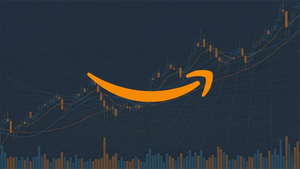Bitcoin was supposed to be the inflation killer. While central banks printed money like it was going out of style, Bitcoin would protect your wealth. Digital gold, they called it. Fixed supply versus infinite fiat. The math looked perfect on paper. Then actual inflation showed up, and things got weird.
The Bitcoin price today hovering around $124,000 might seem like vindication for the inflation hedge crowd. But back in 2022, when inflation peaked at 9%, Bitcoin fell sharply to $16,000, a reminder that its relationship with inflation remains inconsistent in practice.
The Digital Gold Story That Fell Apart
Here's the inflation hedge pitch everyone bought: Bitcoin has a fixed supply of 21 million coins. Governments can't print more of it. Therefore, when fiat currencies get debased through money printing, Bitcoin should go up. Simple as that.
Except it wasn't. When inflation exploded in 2021-2022, hitting levels not seen since the 1980s, Bitcoin didn't act like gold at all. It acted like a tech stock on steroids. The Fed started raising rates to fight inflation, and Bitcoin tanked right alongside Netflix and Tesla. Digital gold? More like digital NASDAQ.
The problem with the inflation hedge theory is it assumes Bitcoin trades on fundamentals. It doesn't. Bitcoin trades on liquidity, leverage, and sentiment. When the Fed tightens, liquidity dries up, leveraged positions blow up, and sentiment turns ugly. Doesn't matter what the inflation rate is.
What Happened When Real Inflation Hit
Let's talk about what actually went down when inflation wasn't just a theory anymore. In March 2022, CPI hit 8.5%. Bitcoin's response? It dropped from $47,000 to $37,000 that same month. By June, with inflation at 9.1%, Bitcoin was below $20,000.
Meanwhile, actual gold - the boring yellow metal everyone said Bitcoin would replace - barely budged. It just sat there around $1,800-$2,000, doing exactly what a hedge should do: nothing spectacular. That's the difference between a real hedge and a risk asset pretending to be one.
Institutional investors dumped Bitcoin first when inflation fears peaked, treating it like any other speculative asset. The "uncorrelated asset" narrative died right there. Bitcoin correlated perfectly - with everything going down.
The Venezuela Argument Doesn't Count
"But what about Venezuela?" crypto bros ask. "Or Turkey? Bitcoin saved people there!" Yeah, let's talk about that. In countries with collapsing currencies, Bitcoin helps because anything beats holding bolivars losing 50% monthly. A moldy sandwich would outperform the Venezuelan bolivar.
That's not Bitcoin being an inflation hedge. That's Bitcoin being an escape hatch from a currency that's literally dying. There's a massive difference between protecting wealth during 8% inflation in America and fleeing a currency experiencing 1000% hyperinflation. One's a hedge, the other's a lifeboat.
Using extreme cases to prove general rules is like saying cars are boats because some can float for thirty seconds. It's technically true but practically useless for most people.
When Bitcoin Actually Works
Here's what Bitcoin actually hedges against: currency debasement over long time horizons combined with functioning markets. Not inflation specifically. Not short-term purchasing power. But long-term monetary expansion when markets stay liquid.
Bitcoin worked great from 2020 to 2021 when the Fed printed $5 trillion. But that wasn't inflation protection - that was frontrunning inflation. Smart money bought Bitcoin before inflation showed up, then sold to retail when actual inflation arrived. Classic moves in the market that influence the price of Bitcoin, if you look at the overall pricing trajectory you can start to see it. See how these market forces impact the price of all coins, traders need to be aware and recognise the risks.
The real pattern? Bitcoin pumps when money is loose and crashes when money tightens. That's not an inflation hedge. That's a liquidity sponge. It soaks up excess cash when there's too much floating around and gets wrung out when the party stops.
The Correlation Nobody Wants to Admit
Want to know what Bitcoin really correlates with? The Nasdaq. Specifically, unprofitable tech stocks with high growth promises. The correlation hit 0.7 in 2022 - that's practically moving in lockstep.
Why? Because the same investors buy both. The same macro factors affect both. When risk-on happens, both pump. When risk-off hits, both dump. Bitcoin isn't digital gold - it's a 24/7 tech stock with better marketing.
This doesn't mean Bitcoin's worthless. It just means it's not what people pretend it is. It's a speculative asset that does great in certain conditions and terrible in others. Calling it an inflation hedge is like calling a Ferrari a family car. Sure, it has four seats, but come on.
The Bottom Line
Bitcoin isn't really a hedge against inflation. It's a bet on monetary expansion, market liquidity, and investor risk appetite. Sometimes those align with inflationary periods, sometimes they don't. The last few years proved that pretty conclusively.
If you want an actual inflation hedge, buy TIPS bonds or real estate or maybe some actual gold. If you want an asymmetric upside with massive volatility, buy Bitcoin. Just stop pretending they're the same thing. The market already figured this out the hard way.





